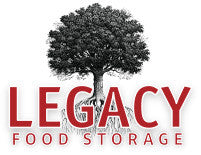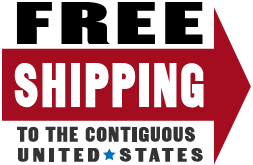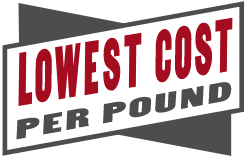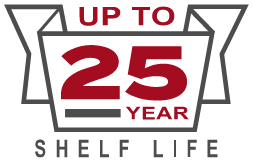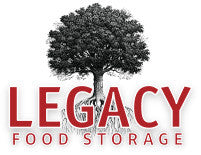Emergency Preparedness ,
Jared Matkin ,
Water Filters ,
Water Filtration ,
Water Pitchers with Filters -
April 11, 2011
Is Your Tap Water Safe?
 Historically, the United States has one of the safest and most reliable water sources in the world, offering clean water to cities and communities all around the nation. But is the tap water in your house really safe? How vulnerable are we to contamination? What can we do ensure we are drinking clean water while minimizing the impact associated with buying water?To understand the safety of out water it’s important to consider the source. Most drinking water comes from surface water (rivers, lakes and reservoirs) or ground water (wells and aquifers) before it is directed to treatment facilities where the water is filtered and disinfected. From there, water is distributed to populations, and should generally undergo continued monitoring by government regulators.But water pollution occurs in many different ways. Surface water contamination can occur as a result of pesticides, sewage, animals, or even runoff and sediment. Ground water contamination is generally caused over time as pollutants find their way into the surface of the earth and into underground aquifers and wells. Underground storage tanks account for much groundwater pollution when manmade products like gasoline, oil and sewage are held in a compromised container.In many cases, and in most cities, treatment facilities do outstanding work to ensure healthy adults can drink tap water in this country worry free. But analysis performed by the National Resources Defense Council (NRDC) reveal several contaminants that consistently appear in tap water in cities all around the country. While the severity of contamination is variable, this reality leaves pregnant women, children, the elderly and those with weak immune systems especially vulnerable to contracting water borne illness from drinking even regular tap water. If you ever saw the movie Erin Brokovich then you have probably heard about Chromium-6. For those who didn’t see the film, Chromium-6 is a known carcinogen that has been linked to cancer. The Environmental Working Group tested tap water in 35 cities, and the final results indicated that 31 of them had traces of the chemical, 25 of which were above a California-set safe consumption level. This is just one example of a harmful compound that can make its way into our water systems, and in addition to the chemicals that have gained notoriety thanks to Hollywood, there are still many potential threats to regular drinking water. Most contaminants fall into one of the following categories:Organic Compounds: i.e. Acetone, Benzene, Carbon TetrachlorideMicrobiological Organisms: i.e. Cryptosporidium, Coliform bacteria/virus, giardiaInorganic Compounds: i.e. Arsenic, Chromium-6, copper, leadDespite state and Federal efforts to keep America’s water sources pure and clean, doing what you can to ensure your own protection is a wise idea. But don’t think the solution is as simple as a trip to the store. Bottled water may offer a false sense of security in that it is not subject to the same scrutiny as public water sources are. In other words, there’s no way of knowing what you’re really getting. The best preventative measure in increasing protection for your family is to take matter into your own hands.
Historically, the United States has one of the safest and most reliable water sources in the world, offering clean water to cities and communities all around the nation. But is the tap water in your house really safe? How vulnerable are we to contamination? What can we do ensure we are drinking clean water while minimizing the impact associated with buying water?To understand the safety of out water it’s important to consider the source. Most drinking water comes from surface water (rivers, lakes and reservoirs) or ground water (wells and aquifers) before it is directed to treatment facilities where the water is filtered and disinfected. From there, water is distributed to populations, and should generally undergo continued monitoring by government regulators.But water pollution occurs in many different ways. Surface water contamination can occur as a result of pesticides, sewage, animals, or even runoff and sediment. Ground water contamination is generally caused over time as pollutants find their way into the surface of the earth and into underground aquifers and wells. Underground storage tanks account for much groundwater pollution when manmade products like gasoline, oil and sewage are held in a compromised container.In many cases, and in most cities, treatment facilities do outstanding work to ensure healthy adults can drink tap water in this country worry free. But analysis performed by the National Resources Defense Council (NRDC) reveal several contaminants that consistently appear in tap water in cities all around the country. While the severity of contamination is variable, this reality leaves pregnant women, children, the elderly and those with weak immune systems especially vulnerable to contracting water borne illness from drinking even regular tap water. If you ever saw the movie Erin Brokovich then you have probably heard about Chromium-6. For those who didn’t see the film, Chromium-6 is a known carcinogen that has been linked to cancer. The Environmental Working Group tested tap water in 35 cities, and the final results indicated that 31 of them had traces of the chemical, 25 of which were above a California-set safe consumption level. This is just one example of a harmful compound that can make its way into our water systems, and in addition to the chemicals that have gained notoriety thanks to Hollywood, there are still many potential threats to regular drinking water. Most contaminants fall into one of the following categories:Organic Compounds: i.e. Acetone, Benzene, Carbon TetrachlorideMicrobiological Organisms: i.e. Cryptosporidium, Coliform bacteria/virus, giardiaInorganic Compounds: i.e. Arsenic, Chromium-6, copper, leadDespite state and Federal efforts to keep America’s water sources pure and clean, doing what you can to ensure your own protection is a wise idea. But don’t think the solution is as simple as a trip to the store. Bottled water may offer a false sense of security in that it is not subject to the same scrutiny as public water sources are. In other words, there’s no way of knowing what you’re really getting. The best preventative measure in increasing protection for your family is to take matter into your own hands.
- -Have your water tested for harmful contaminants.-Make plumbing upgrades in your home to remove old pipes that are notorious for carrying lead.-Invest in
- technology like reverse osmosis, and pair it with powerful carbon filters forincreased protection.-Understand exactly what
- do, and whatthey remove before making a purchase. Have a look at this
- .-If you have concerns about the quality of your tap water, reach out to your city’s public utilities department for information on drinking water, source protection and water quality.

Tags
- All
- 72 Hour Kit
- Emergency Food
- Emergency Food Storage
- Emergency Preparedness
- Fire Starter
- Food Storage
- Homesteading
- Jared Matkin
- Natural Disasters
- Portable Solar Panels
- Portable Solar Power
- Portable Water Filters
- Survival Food
- Survival Gear
- Survival Kit
- Survival Kits
- Survivalist Gear
- Water Bottle with Filter
- Water Filter
- Water Filter Straw
- Water Filters
- Water Filtration
- Water Picher with Filter
- Water Pitcher with Filter
- Water Pitchers with Filters
